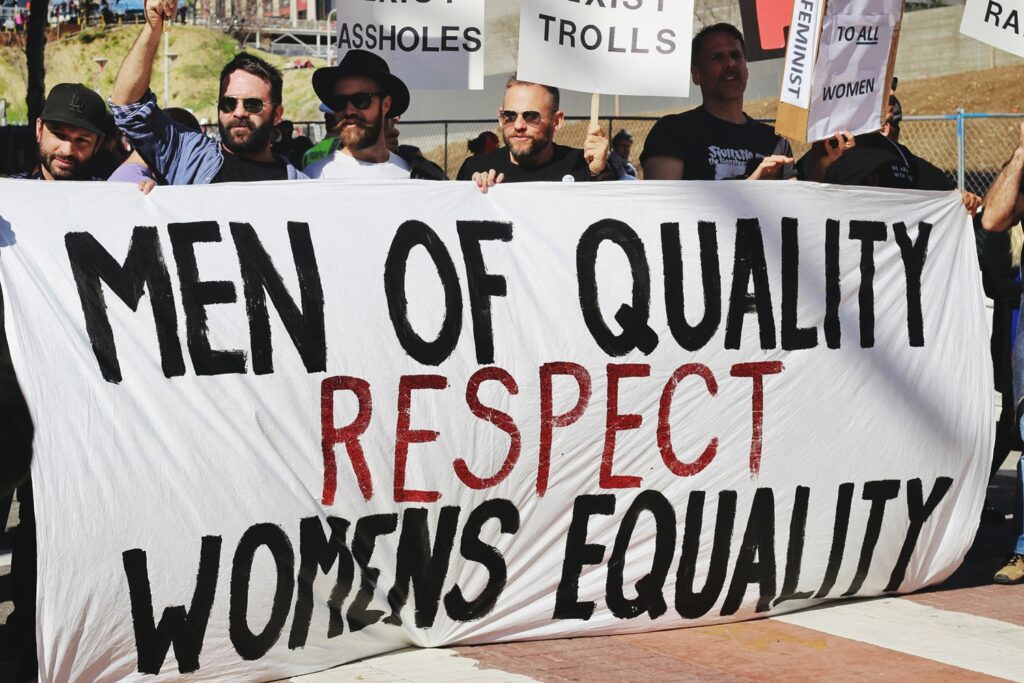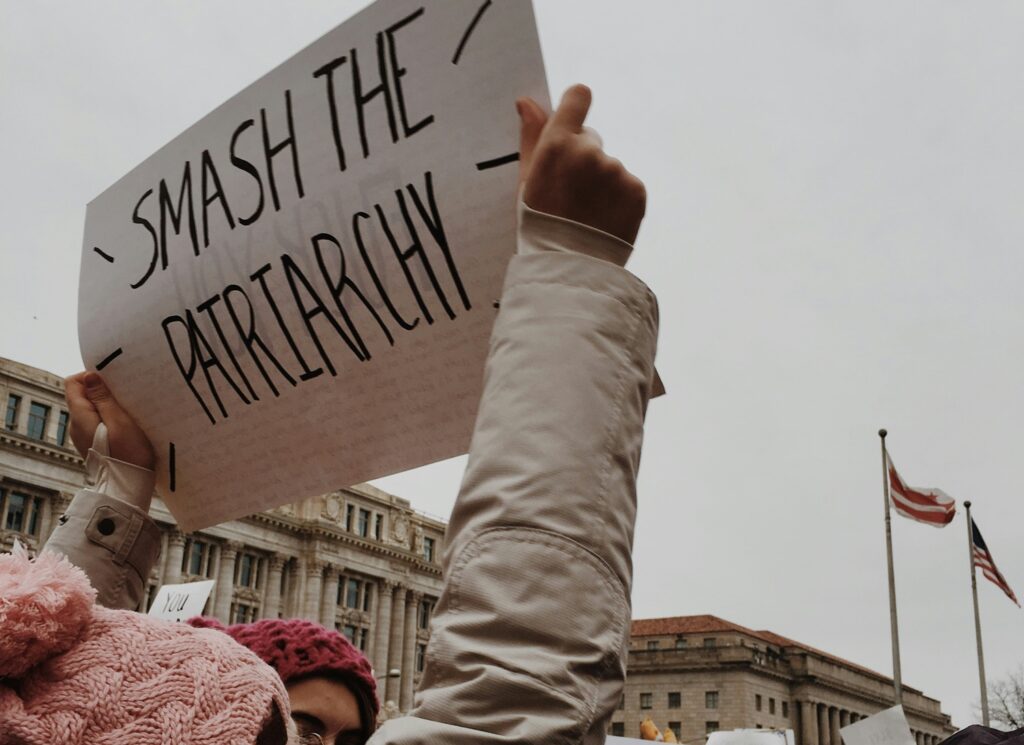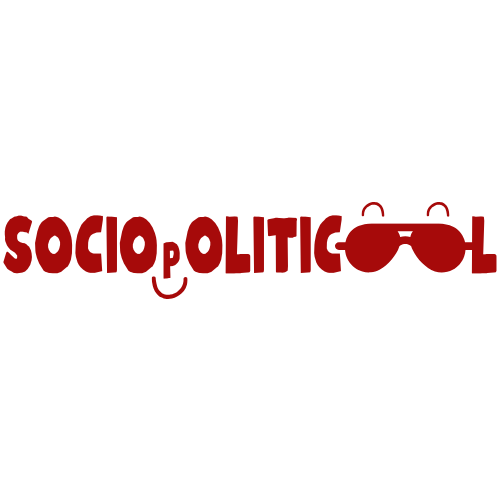There are lots of myths about feminism that must be debunked. And this is an important read not only for men, but also for women.
I have seen women calling themselves feminists, but their entire personality is centered around insulting men. That is not feminism, girl!
But before we get into that, how did feminism start? How has it evolved?
Feminism Seeks Equality Between the Sexes
Fundamentally, feminism is about equality. Nothing more, nothing less.
It is the belief that people, regardless of their sex or gender, should have equal rights, opportunities, and treatment.
It evolved through different historical stages, or “waves.”
First Wave Feminism
The first wave of feminism began in the late 19th to early 20th century and was mainly about legal equality.
A Vindication of the Rights of Woman by Mary Wollstonecraft inspired the first wave of feminism.
In the United States and Britain, women campaigned for the right to vote, own property, and receive education.
These were basic rights that women were denied because of their gender.
Second Wave Feminism
Second wave feminism rose from the 1960s to the 1980s.
It tackled deeper societal issues such as reproductive rights, workplace discrimination, marital roles, and domestic violence.
Women began asking, “Why are we expected to do all the housework, even when we also have jobs? Also, why are our bodies controlled by others?”
“The personal is political” was a popular slogan at the time, which means that private struggles were public issues.

Third Wave Feminism
In the 1990s, third wave feminists said, “Hold on. Women aren’t all the same. We are different races, classes, cultures, and identities.”
It focused on intersectionality, a term coined by Kimberlé Crenshaw, meaning that race, gender, sexuality, and class all intersect to shape one’s experience.
Fourth Wave Feminism
The fourth wave is where we are now. It started around 2012 and is fueled by technology and social media.
Fourth wave feminists fight for LGBTQ+ rights and against toxic masculinity. They use online platforms to challenge injustice.
The fourth wave is different. It uses digital platforms to organize quickly and highlights issues like online abuse, intersectionality, and sexual consent more than earlier waves.
It emphasizes inclusivity, body positivity, and awareness of sexual harassment and assault. Familiar with the #MeToo movement?
Myths About Feminism That Must Be Debunked
Even with all the progress, feminism is still misunderstood, especially in traditional or conservative cultures.
Let’s break down some myths about feminism that must be debunked!
Feminism Ignores Men’s Rights
I will not deny that many feminists ignore men’s rights. I see them on social media, enumerating all the reasons why men are trash.
But for those who are in their right mind, they acknowledge that men have feelings, too. They can cry and be weak at times.
Women Feminists Want to Be Superior to Men
Feminism is about leveling the playing field, not about women winning over other genders. They simply want equal opportunities.
Only Women Can Be Feminists
Anyone, regardless of gender, can support equality. In fact, they need men to be allies in the fight for fairness.
When men speak up against sexism, respect boundaries, and share household duties, they are balancing out the situation.

Feminism Is Outdated Because Women Have Rights
Yes, women can vote and be educated, but there is still work to do.
Look at wage gaps, domestic violence rates, limited access to leadership roles, and unrealistic beauty standards.
Feminism continues to address these ongoing challenges. It is still hard to be a woman in this world, where predatory men exist.
All Feminists Think the Same Way
Feminists come from different backgrounds and have different beliefs. Some focus on politics, others on cultural representation.
Some are radical, while others are moderate. You will learn about the different types of feminism below.
Feminists Have Different Concepts of Equality
Not all feminists have the same ideas of “equality.” Below are some types of feminism. This list is incomplete!
Liberal Feminism
Liberal feminists work within existing systems to promote equal rights. They advocate for equal pay, gender-neutral laws, and representation in leadership.
This is the version of feminism most people are familiar with.
Radical Feminism
Radical feminists believe that the root of women’s oppression is patriarchy, or male-dominated systems and institutions.
Many radical feminists express views suggesting women are morally or socially better than men.
They are critical of beauty standards and marriage, as these put women in positions where men can control them.

Cultural Feminism
Cultural feminists believe that women’s natural traits, like empathy, nurturing, and cooperation, should be celebrated, not suppressed.
They often promote alternative systems where women’s strengths are valued, like collaborative leadership or peace-based politics.
It is a softer approach, rooted in honoring femininity.
Marxist Feminism
Marxist feminists say capitalism and patriarchy work hand in hand. They argue that women are exploited both at home and in the workforce.
They think that a complete overhaul of economic systems is needed to ensure equality among all genders.
This is deeply connected to class struggles and wealth redistribution.
Choice Feminism
Choice feminism centers on personal freedom.
It says that women should be empowered to make any choice, whether it is being a CEO, a stay-at-home mom, or anything in between.
As long as the choice is free from pressure and judgment, it is valid.

Feminism Is Becoming Toxic in the 21st Century
It is understandable to feel conflicted about calling yourself a feminist. I don’t use that label either, even though I am by definition a feminist.
I noticed that many of the so-called feminists today don’t understand what it really is. They belittle men because they want to be superior.
They are not fighting for equality because they want to have more power. You will hear them say something like, “I will not cook for my husband when he’s too tired because he should be independent. I am not his maid.”
Where is the partnership there, and the love?
Love is slowly disappearing from this world. If I offended you, I simply told you a glimpse of what I have been seeing online.
Feminism has been tainted with absurdity. I just want to be a human at this point and treat others as humans.










